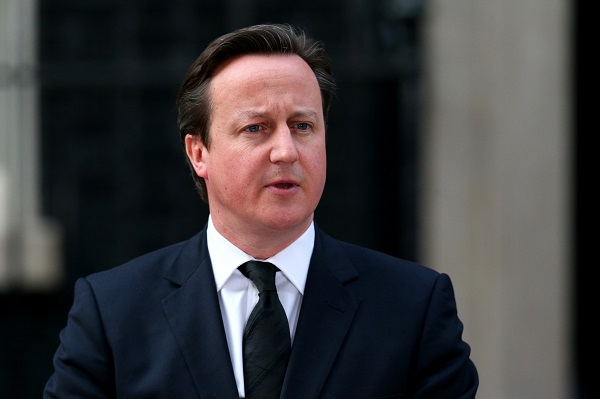George Osborne might have used Justin Welby’s comments on the problems with the banks this morning as a sign that he has at least one ally out there, but this afternoon, the Prime Minister’s official spokesman distanced the government from the Archbishop’s use of the word ‘depression’ to characterise this country’s current economic circumstances. He said:
‘The Prime Minister agrees with the point the Chancellor of the Exchequer was making when he was asked that question this morning. What the Chancellor said was that he agreed with the Archbishop’s analysis that we have a slow and difficult recovery because of the problems in the banking system and those are the problems that need addressing.
‘As the Chancellor said, he doesn’t use that word and nor does the Prime Minister… Because the Chancellor and the Prime Minister use their own words when they are talking about the economy.’
Whatever words the Prime Minister and his colleagues did decide to use this morning, they discussed how they could use transport to encourage growth when they met as a Cabinet in Downing Street. Transport Secretary Patrick McLoughlin gave a presentation to colleagues about his department’s growth strategy.
But it’s worth mulling how well the government’s other pushes for growth are going at the moment. Peers last night rejected the government’s shares-for-rights scheme, which would see workers gaining shares in their company in exchange for giving up certain employment rights. The Chancellor himself announced the plan at last autumn’s Tory conference (where it went down like a lead balloon even with commentators desperate for further supply-side reform). Eric Pickles and Nick Boles are bringing their new plans for homeowners to extend their properties without planning permission back to the Commons after a revolt last week. They are confident that most MPs will support them this time round, after only just managing to defeat an amendment from the Lords last week. But further attempts to liberalise the planning laws look unlikely in this parliament, as Tory MPs appear to have run out of patience with the upheaval that this causes. The question for ministers if this week’s GDP figures are disappointing, and even more so if things don’t pick up after this summer, as the Treasury hopes, is where can they push their MPs and peers further if they want to introduce more initiatives to encourage growth. If they miscalculate, they may have to come up with their own words to describe the state of their backbenches, too.







Comments